- Open Monday to Friday from: 07:00 am - 10:00 pm
- Weekend and public holidays 07:00 am - 12:00 pm and from 3:00 pm - 8:00 pm
Den Helder Airport was created in the late 1960s with the rise of the offshore industry on the Dutch Continental Shelf and has developed in 55 years into the Netherlands' only all-round offshore aviation centre.
Since the early 1980s, Den Helder Airport has shared use of a number of facilities at Maritime Airport De Kooy. This includes the joint use of the runway, traffic control, fire brigade and weather.
Den Helder Airport, as the Netherlands Offshore Aviation Mainport, plays an important role in facilitating offshore air traffic. Not only for the transport of personnel and cargo by helicopter to the offshore oil and gas platforms, but also to the offshore wind farms and installations. Den Helder Airport is the only airport in the Netherlands where passengers and cargo fly to the critical offshore infrastructure in a fully controlled manner.
Den Helder Airport is the primary choice for the offshore industry, partly thanks to its perfect location in relation to the wind, oil and gas fields that are centrally and in the southern parts of the North Sea. But also because of the efficient connection with Schiphol. Den Helder Airport is the founder and prominent member of the European North Sea Heliports Alliance (NSHA), consisting of the 6 main offshore airports of 5 European countries around the North Sea, which together are responsible for the transport of more than one million passengers per year.
Den Helder Airport is part of the supply chain of critical infrastructure in the North Sea and a vital link in the development and maintenance of energy systems at sea.
Den Helder Airport is equipped for the future with all the facilities of an international airport. Traffic control, 1.3 kilometers ILS runway, 12 spots, 5 hangars, passenger and baggage control systems, terminal, check-in desks, handling companies, security, military police, customs, underground fuel bunkers, secure parking spaces, etc. This allows Den Helder Airport also develop direct fixed-wing flight connections between Den Helder, UK and Denmark, together with the airports of the NSHA. That also contributes to a sustainable energy transition.
The effect of the climate agreements will radically change the energy system in the Netherlands and the rest of the world towards 2050. Also in the North Sea, where 22,500 large wind turbines will ultimately supply a large part of the European energy demand. The energy transition is therefore important for the future of Den Helder Airport. The modern offshore helicopter has been proven to be clean, safe and extremely efficient and will always remain a logical, but also sustainable choice for the transport of technicians and small cargo.
In 2008, Den Helder Airport facilitated more than 24,000 flight movements. This is expected to decrease after the phasing out of oil and gas extraction, which will ultimately leave room for 5 to 6 offshore airport centers around the North Sea. Consolidation is inevitable. It is important that the Netherlands remains part of this with Den Helder Airport. By making all ground operations more sustainable by 2030, facilitating maritime drones and optimal design, Den Helder Airport, and therefore Dutch offshore aviation, is ready for the future.
Den Helder Airport is open on weekdays from 7 am to 10 am and on weekends and national and Christian holidays from 7 am to 12 am and from 3 pm to 8 pm.
Read here all important information described in our internal regulations.
For lost items you can contact NoordWest Services & Security by telephone +31(0)223-637 770. All lost items will be reported to the municipality of Den Helder. You can find your lost item via the following link https://www.verlorenofgevonden.nl.
Smoking is only allowed outside at Den Helder Airport. There are ashtrays to the right of the entrance (seen from crosswalk) of the terminal.
Den Helder Airport and Maritime Air Base de Kooy do their utmost to cause as little noise pollution as possible. For any complaints, please use the online complaint form be used or called using the toll-free number 0800-022 60 33.
For spotters there a good locations alongside the fences of Den Helder Airport. On the website of Spotting Group De Kooy you will find photo material from spotters at Den Helder Airport. Here you will also find information about the most suitable spotting locations. The spotters also have a group on Facebook called EHKD-Spotters MVK De Kooy / Den Helder Airport.

Den Helder Airport offers various facilities comparable to other Dutch airports, such as:
Den Helder Airport is among the top 3 in Europe when it comes to the number of offshore flight movements.
In the terminal there is restaurant Vice Versa where you can enjoy a drink, a small snack, a sandwich or a warm meal.
Restaurant Vice Versa is open Monday to Friday from 6 AM to 6:30 PM. On Saturday and Sunday the restaurant has limited opening due to limited flight operations.
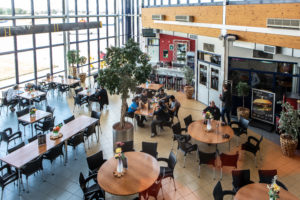
Den Helder Airport offers free fiber optic internet so that you can check your e-mail, send documents or surf the web at the airport, using your own mobile device.
Baggage lockers can be rented in the terminal for a fee of € 10.00. Click here for the terms of use.
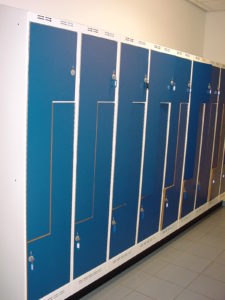
A parking space is available for the disabled in front of the main entrance of the terminal. There is an adapted toilet in the central hall (suitable for wheelchair).
Baby care is available in the ladies' toilet in the central hall.
The motorcycle and bicycle shed is located between the airport office and the terminal.
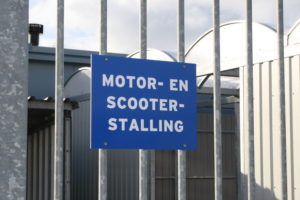
Our airport has been around for 50 years now. Below is an overview of our rich history.
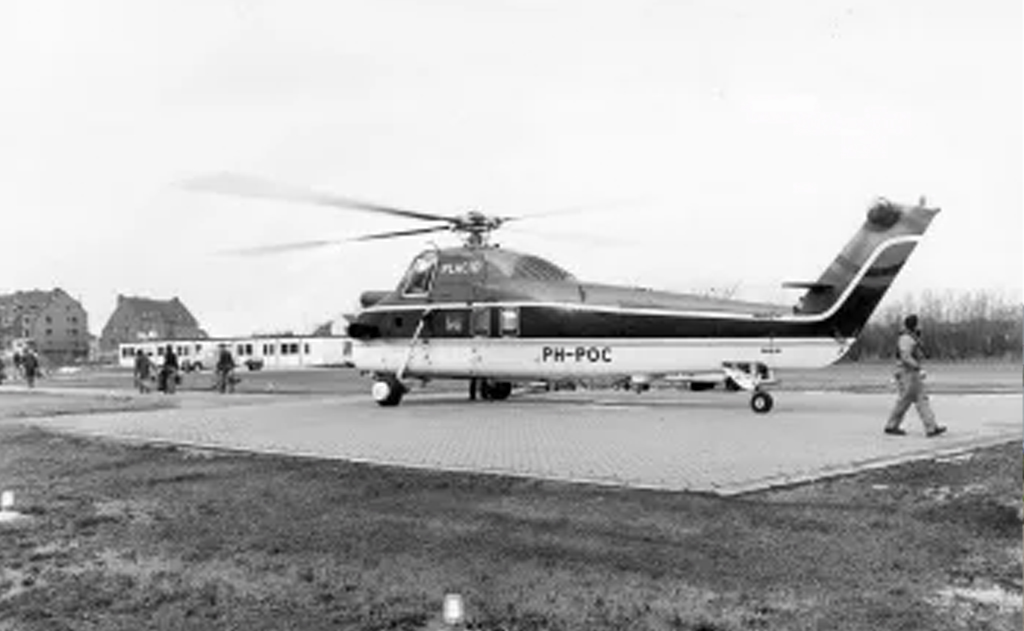
In the 1960s, the offshore industry in the Dutch sector of the North Sea took off. At the end of the sixties, oil company Placid decided to be the first to perform helicopter flights from the then newly constructed municipal heliport in Den Helder. Later on, the Nederlandse Aardolie Maatschappij (NAM) and Elf Petroland would also follow this example. At one point it became so crowded that the lack of space became very acute.
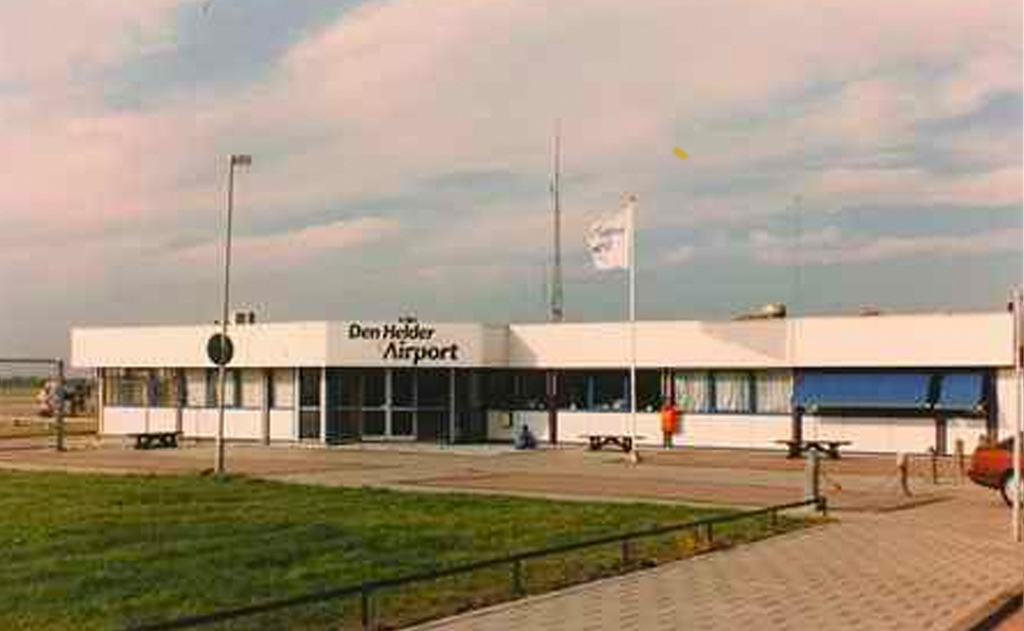
The municipality of Den Helder therefore decided to lease a piece of land from Domeinen next to Maritime Air Base De Kooy and to construct a new heliport on it. Shared use could be made of the runway, fire brigade, traffic control and meteorological service of Maritime Air Base De Kooy. The terminal opened in May 1981. Furthermore, it was agreed with the oil companies concerned that they would guarantee the operating costs for a period of ten years. Because the latter was in fact a sector-alien activity for them, the companies left after this period. The municipality of Den Helder decided to set up a BV together with KLM Noordzee Helikopters, which was converted into a CV three years later. The KLM interest has since been taken over by CHC Helicopter.
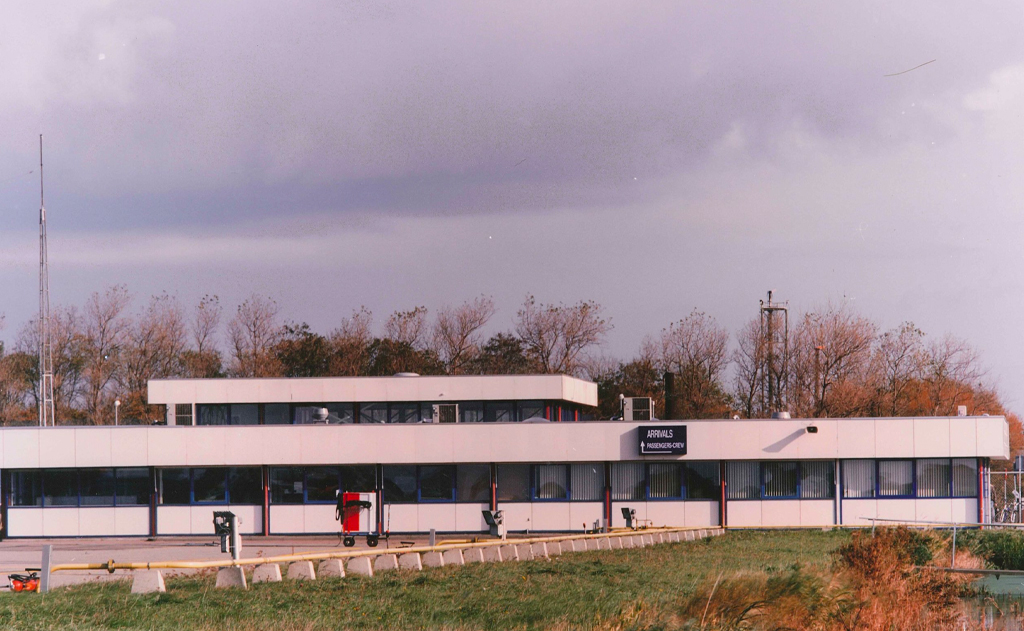
After the foundation of the BV, developments followed each other in rapid succession. In 1991 the terminal was expanded considerably and the former KLM ERA Helicopters had a large hangar built. At the same time, the Instrument Landing System (ILS) was put into use so that air traffic could also proceed under bad weather conditions.
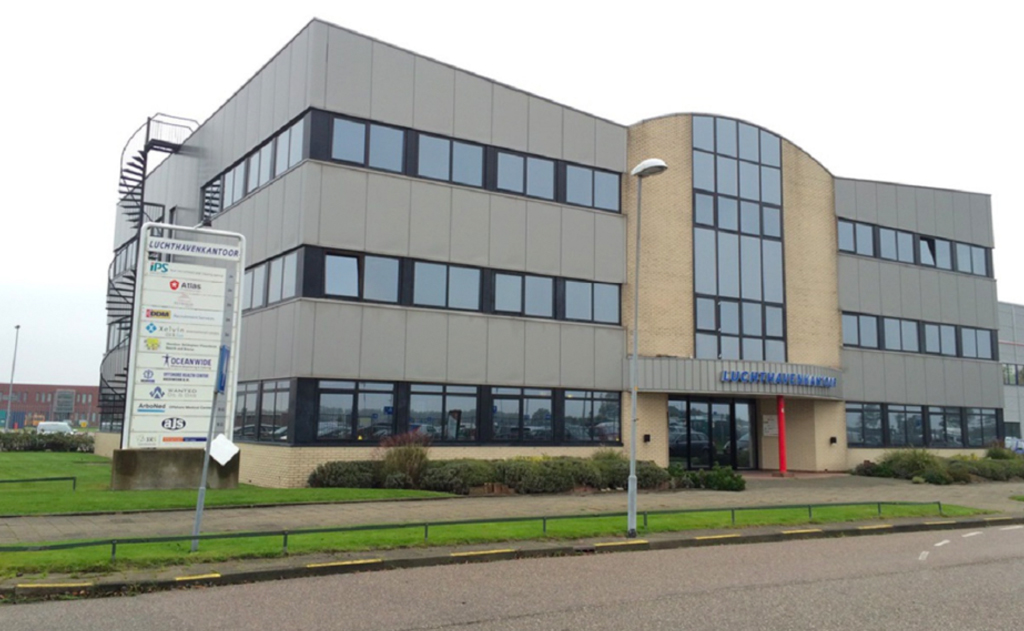
A modern office building was built and put into use in 1995. The office of Den Helder Airport was located here. The following year, a new office building for the oil company Elf Petroland was built and Schreiner Airways and Skyline Aviation each built their own hangar.
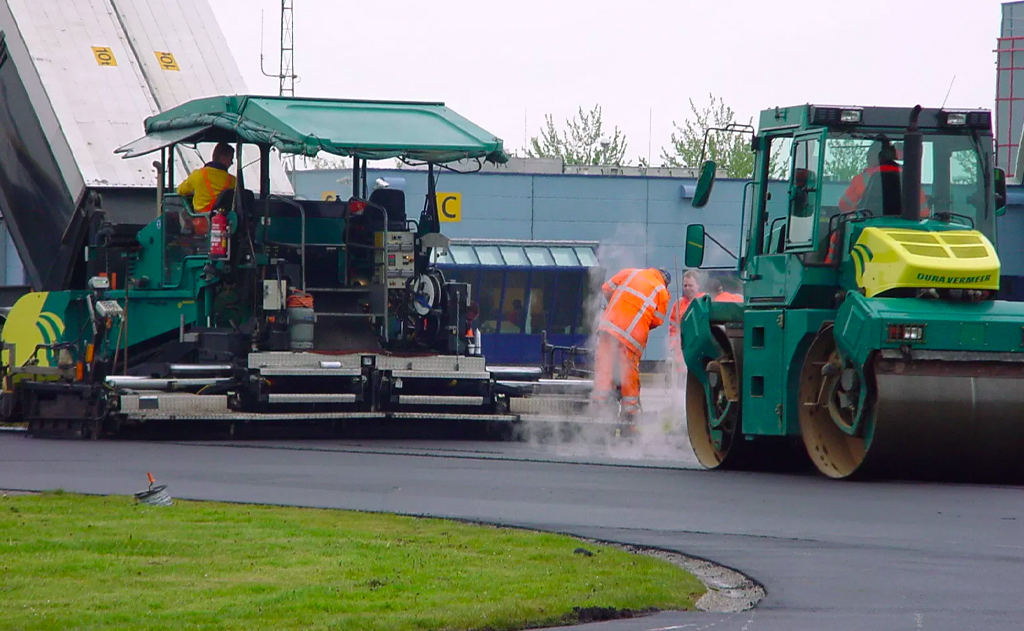
A new taxiway and some spots were constructed and in 1998 a second hangar for Skyline was completed and put into use.
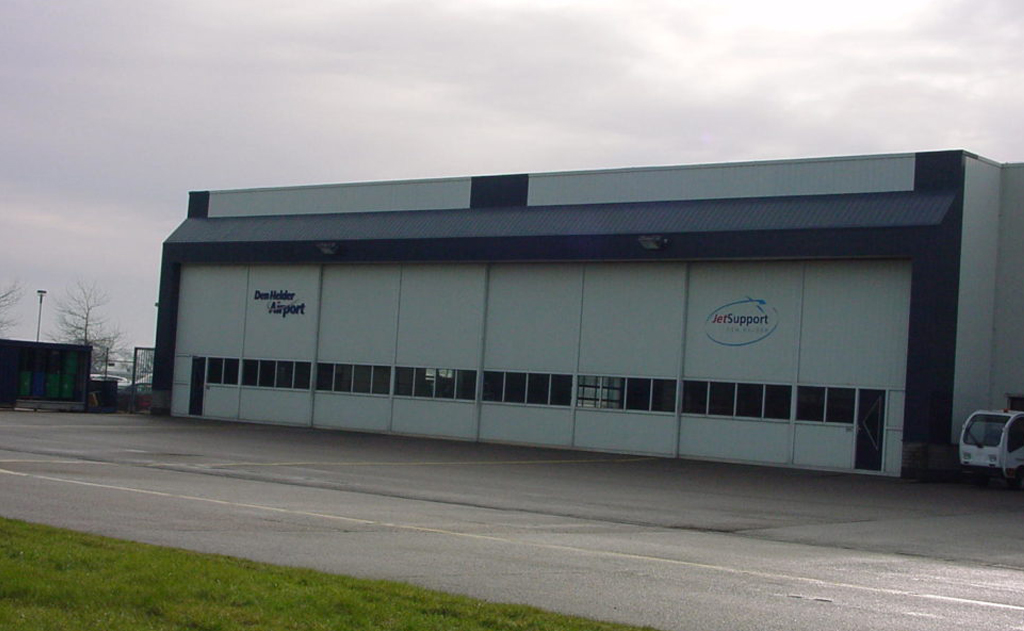
In 1999 Den Helder Airport took over the hangar from the former Schreiner and the car park was expanded by 160 places, increasing the total parking capacity for passengers to 430 places.
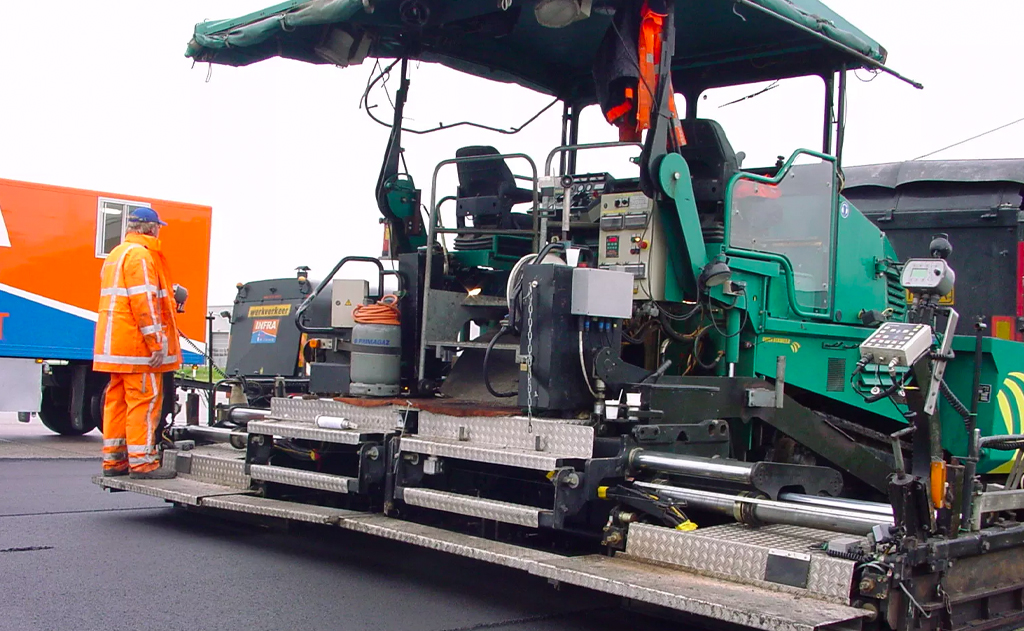
In June 2000, a large platform with a liquid-tight floor (6000 m²) was constructed and the first spots installed, in connection with stricter environmental requirements, were provided with a liquid-tight floor and a sewerage system with oil and grease separator.
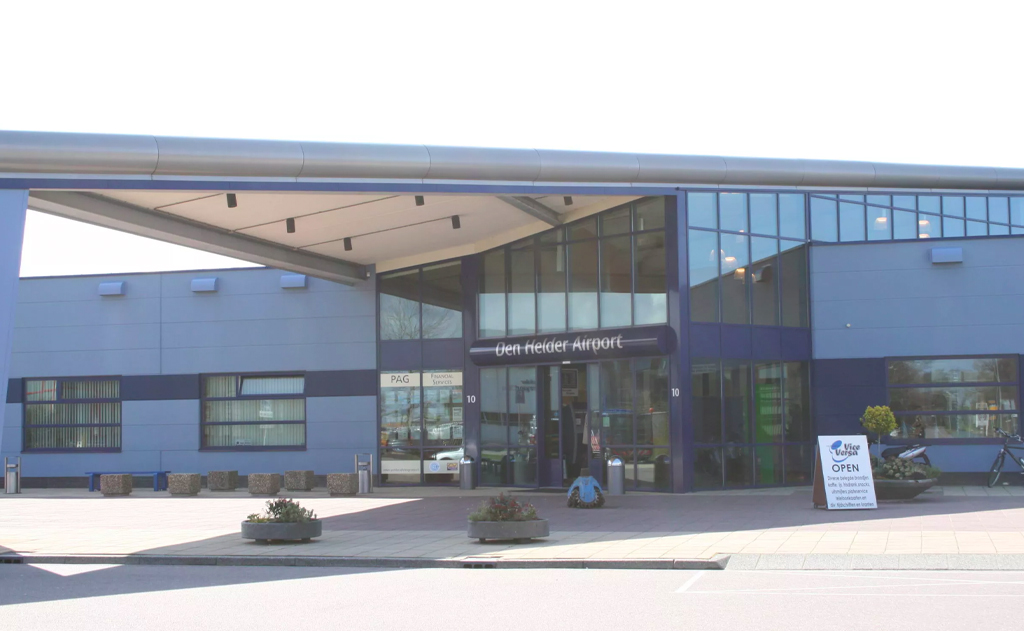
In June 2003, the current terminal was completed and put into use.
The management of Den Helder Airport also moved to this building.
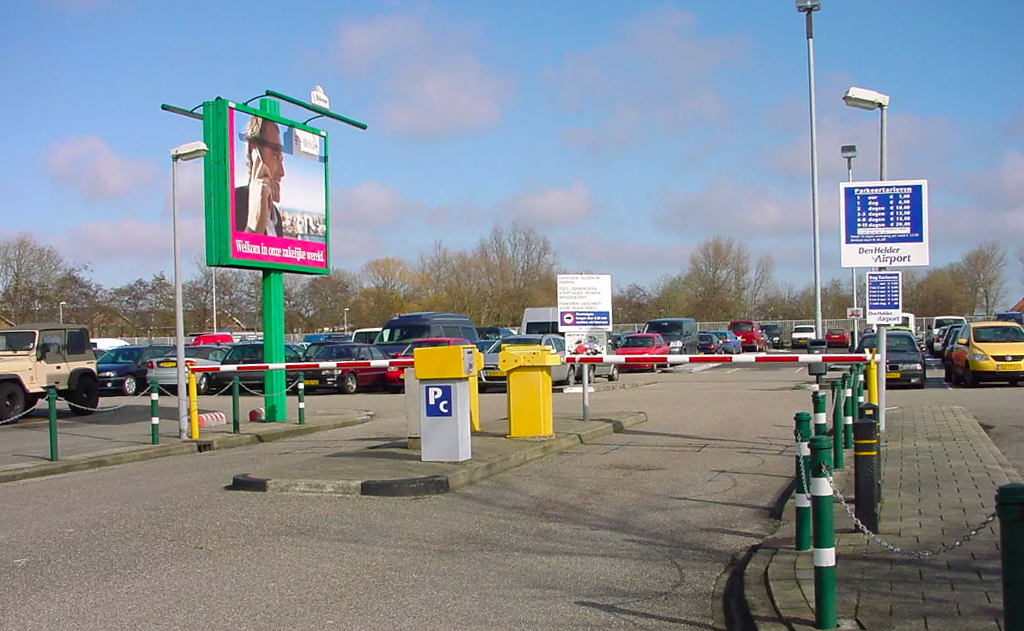
Between 2007 and 2013, the visitor's car park was expanded in phases from 427 to 873 places and provided with signage, so that it is easy to find the car after a period offshore.
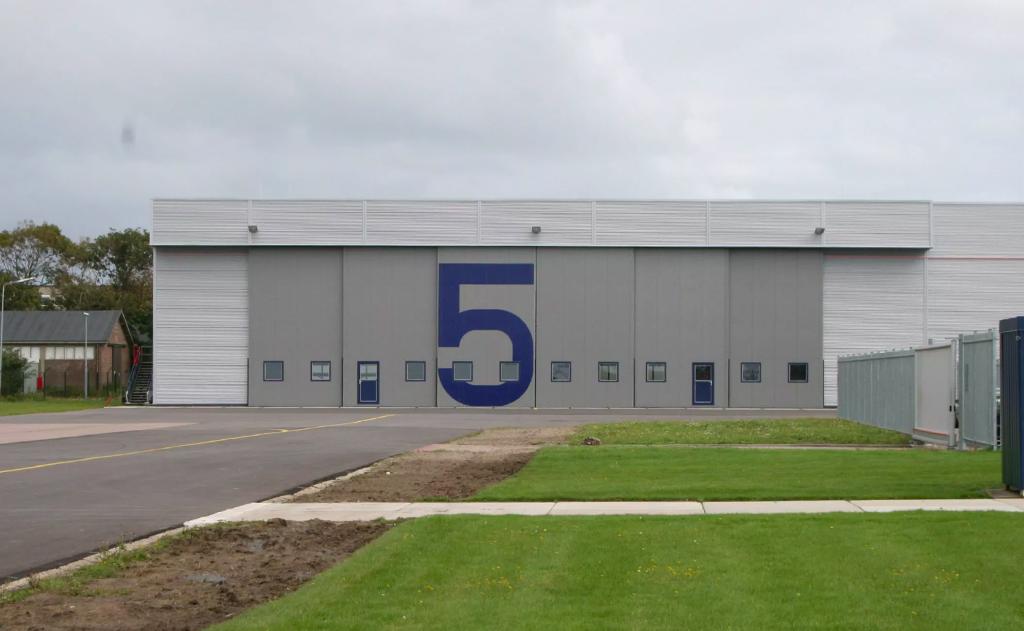
Hangar 5 at Den Helder Airport was taken into use in July 2010.
The new building adjacent to this hangar was completed on 1 January 2013. A special feature of hangar 5 is that solar panels have been placed on the roof, so that the own energy supply can be met. This sustainably built hangar is excellently insulated, heated and has a liquid-tight floor.
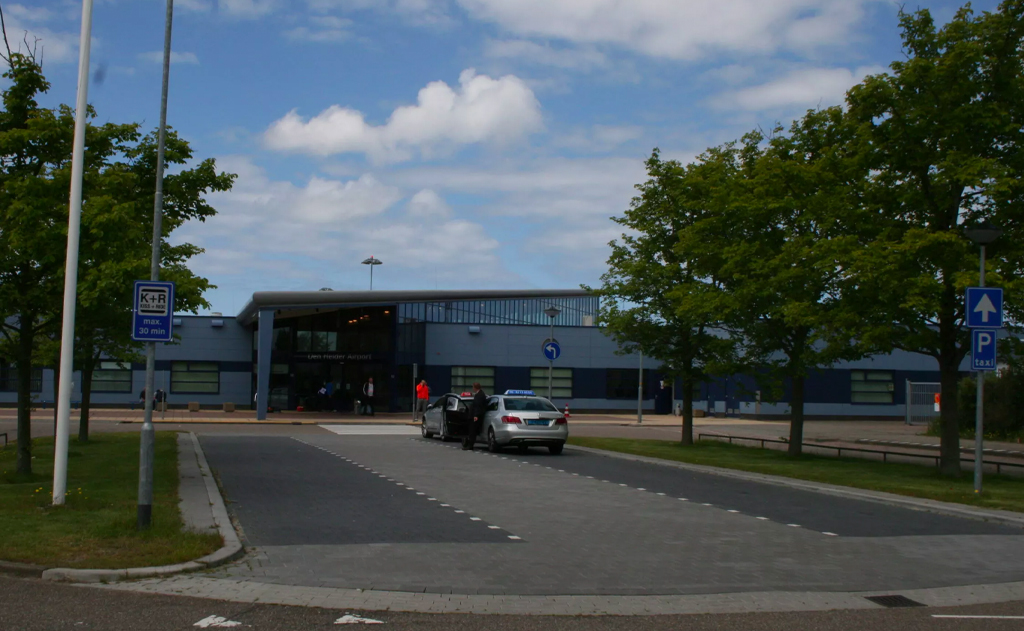
To improve the accessibility of the approach circuit and the bus stop for Connexxion, the site in front of the terminal was redesigned in 2013. In the middle of the park, a lane has been created with taxi ranks on one side and the so-called Kiss & Ride places on the other.
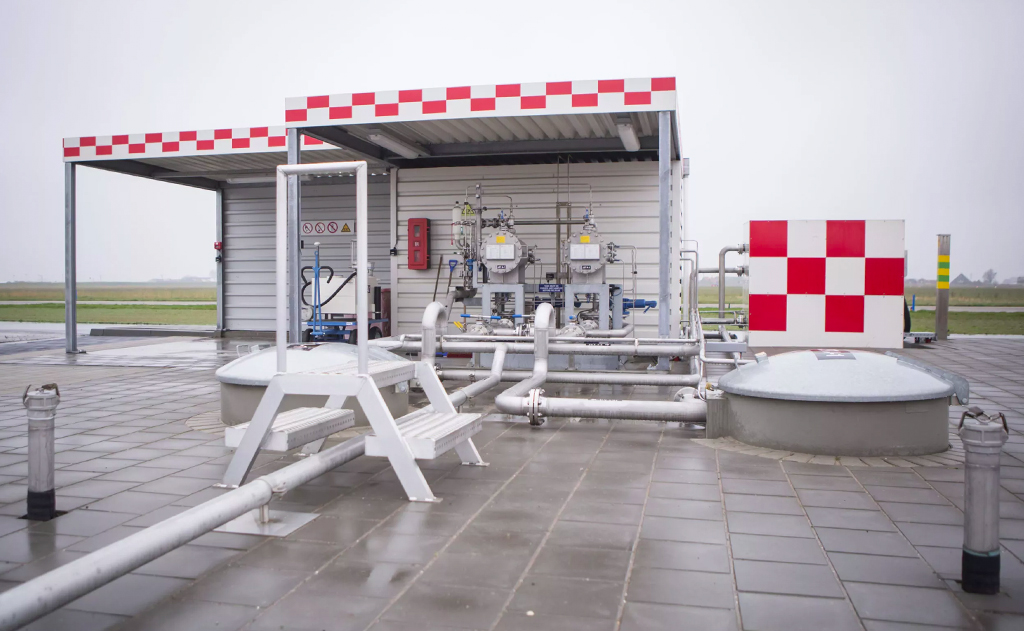
In 2014 an entirely new fuel installation was installed by Air BP.
The work carried out included the installation of two underground storage tanks with a capacity of 60,000 liters each, the construction of new underground pipes and the expansion of the number of refueling locations from six to ten. The new fuel installation was officially put into use on 4 April 2014.
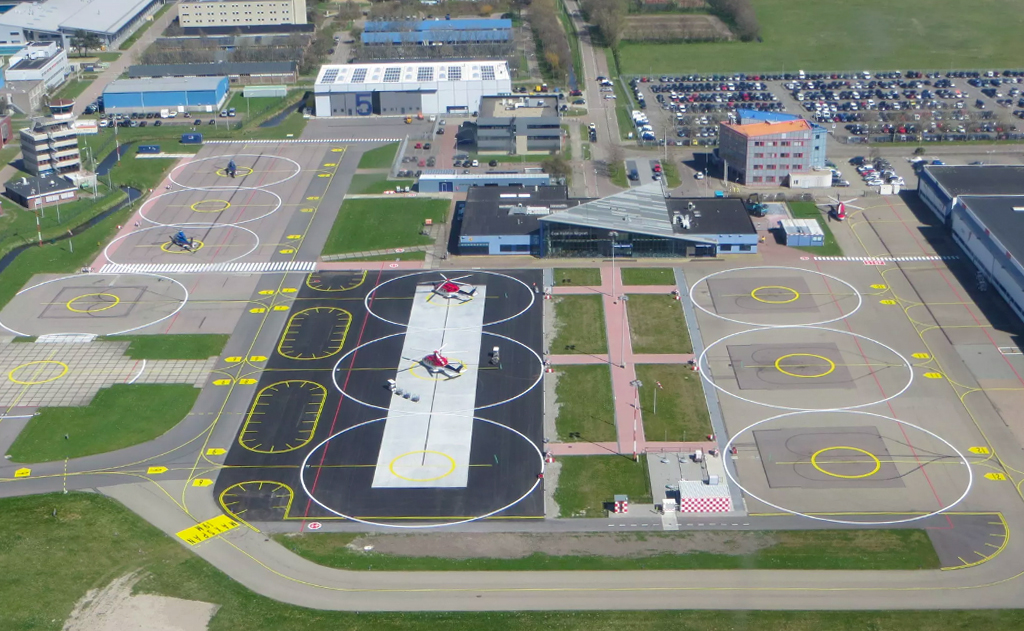
In January 2015, Ballast Nedam started measuring the platform to be renewed and the track to be constructed for the tanker, after which the real work could begin in February. It was a replacement of the three spots that were first installed at the Den Helder Airport branch in 1981 at the current location. Instead of installing three liquid-tight asphalt surfaces with the necessary gutters again, one large liquid-tight, seamless concrete slab with 1 gutter was chosen. Concrete is more durable, so that no maintenance, but only inspection will be required in the coming years. The new platform was officially opened on April 23, 2015 by the airport director and the former director who was project leader on behalf of Den Helder Airport.
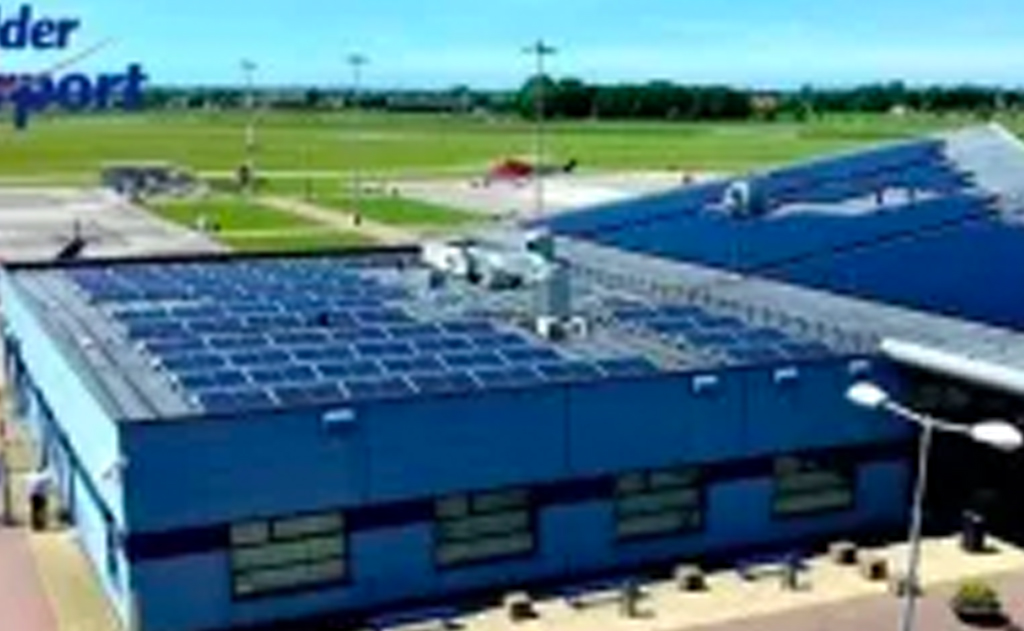
In spring 2019, 650 solar panels were installed on the roof of the terminal, which together account for a yield of 998.07 kWh / kWp and provide a 107,043 kg / year reduction in CO2 emissions.
In order to meet the expectations of the renewable energy market, Den Helder Airport will also have to make its operations more sustainable.
Aviation is also looking for alternatives to reduce CO2 emissions as far as possible. DHA is developing this together with its European partners.
On this website we use first or third-party tools that store small files (cookies) on your device. Cookies are normally used to allow the site to run properly (technical cookies), to generate navigation usage reports (statistics cookies) and to suitable advertise our services/products (profiling cookies). We can directly use technical cookies, but you have the right to choose whether or not to enable statistical and profiling cookies. Enabling these cookies, you help us to offer you a better experience.